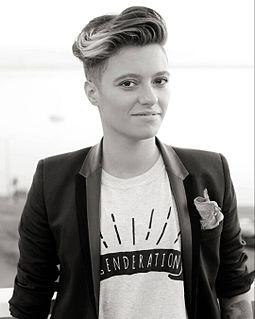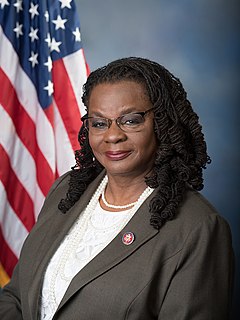A Quote by Tracy Chapman
There have been some gains made in terms of more equality for women in the workplace and in the way the legal system deals with issues of violence against women.
Related Quotes
Countries with more gender equality have better economic growth. Companies with more women leaders perform better. Peace agreements that include women are more durable. Parliaments with more women enact more legislation on key social issues such as health, education, anti-discrimination and child support. The evidence is clear: equality for women means progress for all.
I believe that women are rising to the occasion to tackle many challenges. Whether it's issues that relate to prosperity, the defense of country, the economy of our country; issues that have traditionally been considered women's issues like health and education and the environment are now being defined in terms of our national strength. So I think women have made a big difference in putting things in perspective.
Violence against women continues to persist as one of the most heinous, systematic and prevalent human rights abuses in the world. It is a threat to all women, and an obstacle to all our efforts for development, peace, and gender equality in all societies. Violence against women is always a violation of human rights; it is always a crime; and it is always unacceptable. Let us take this issue with the deadly seriousness that it deserves.
He had heard her say, so many times, that a society that approved of making abortion illegal was a society that approved of violence against women; that making abortion illegal was simply a sanctimonious, self-righteous form of violence against women- it was just another way of legalizing violence against women, Nurse Caroline would say.
I have been working with Women's Aid since 2003 when I became the charity's first Ambassador, and am so pleased to be able to be a part of the 'Real Man' campaign against domestic violence. I studied domestic violence at university and feel passionately that we need to raise awareness of violence against women and children and refuse to ignore it. Just by speaking out against domestic violence and being supportive of those directly affected we can all make a positive difference.
Many women, particularly young women, have claimed the right to use the most explicit sex terms, including extremely vulgar ones, in public as well as private. But it is men, far more than women, who have been liberated by this change. For now that women use these terms, men no longer need to watch their own language in the presence of women. But is this a gain for women?



































